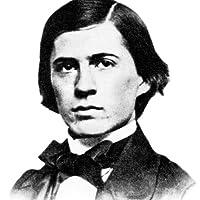
Charles Sanders Peirce
Über den Autor
Charles Sanders Peirce was an American philosopher, logician, mathematician, and scientific methodologist. He is best known for his work in pragmatism, semiotics, and logic. Peirce's ideas on the philosophy of science and his development of the pragmatic maxim laid the groundwork for much of modern philosophy. His writings, although not widely recognized during his lifetime, have had a significant impact on a variety of fields, including logic, mathematics, and semiotics. Peirce's approach to inquiry and his insistence on the importance of community in the process of knowledge production marked a departure from the individualistic tendencies of his contemporaries.
Despite facing personal and professional challenges, Peirce's intellectual contributions have gained recognition over the years. His complex theories encourage a deeper understanding of the interplay between thought, language, and reality. He influenced numerous thinkers and movements, including the later development of pragmatism through figures like William James and John Dewey. Today, Peirce is celebrated as one of the most important American philosophers, with his ideas continuing to resonate across various disciplines.